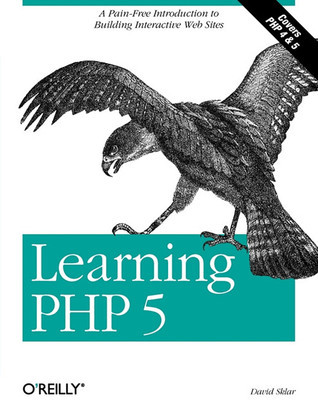This is my first foray into PHP in the hope of engineering a change of career-direction, so it is a bit hard to review the O'Reilly book without also reviewing PHP. I've elected not to try too hard, Instead, I will start with the book and try to keep my impressions of the language for the end.
O'Reilly are probably my favourite software textbooks and this one delivers yet again. The prose is clear, the structure is clear and progressive, there are plenty of examples and there are exercises. I rapidly learned plenty about the language and its use that I had not picked up by just surfing for solutions to toy-programming experiments. There is plenty on designing secure web-sites, for instance, embedded in the course of the text that I would not have thought to look for until after finding it in this book.
PHP itself is a mixed bag. It is quite powerful, with support for object-oriented, procedural and functional paradigms, built-in regular expression handling, associative arrays, plenitude of libraries and a C-influenced syntax that mainly suits my taste as a C++ geek. On the other hand, its acceptance out-of-the-box of undeclared variables, the capacity to assign a different type to an existing variable and just have it mutate without warning and a few niggles like the indentation of HEREDOC fragments make me want to tear my hair out. It's also not trivially obvious how to debug it, and the book does not really provide a production-grade solution. I've loaded some VIM plug-ins to check syntax and declarations and so on, and I will be reading a couple more of the O'Reilly books on the subject.
Worth reading if you are thinking of moving into PHP, but I kind-of wish there were a better-designed language to do the job!

